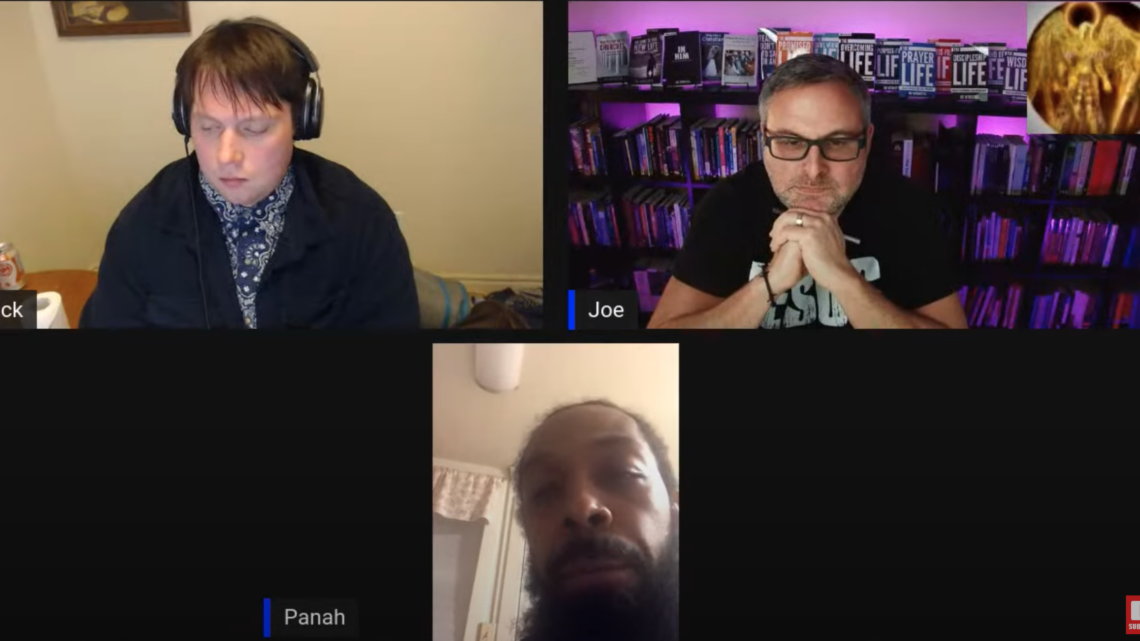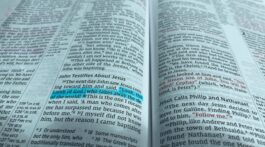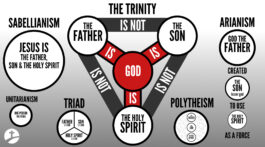In our discussion with so-called Black Hebrew Israelites we should be able to show them that Obadiah was fulfilled in the Hasmonean Dynasty.
OBADIAH 1:1-4 (KJV)
1 The vision of Obadiah. Thus saith the Lord GOD concerning Edom; We have heard a rumour from the LORD, and an ambassador is sent among the heathen, Arise ye, and let us rise up against her in battle.
2 Behold, I have made thee small among the heathen: thou art greatly despised. 3 The pride of thine heart hath deceived thee, thou that dwellest in the clefts of the rock, whose habitation is high; that saith in his heart, Who shall bring me down to the ground?
4 Though thou exalt thyself as the eagle, and though thou set thy nest among the stars, thence will I bring thee down, saith the LORD.
Obadiah 1:19-21
19 People from the Negev will occupy the mountains of Esau, and people from the foothills will possess the land of the Philistines. They will occupy the fields of Ephraim and Samaria, and Benjamin will possess Gilead. 20 This company of Israelite exiles who are in Canaan will possess the land as far as Zarephath; the exiles from Jerusalem who are in Sepharad will possess the towns of the Negev. 21 Deliverers will go up on Mount Zion to govern the mountains of Esau. And the kingdom will be the LORD’s.
LINKS FOR MAPS:
- Map of Hasmonean territory
- Map of places named in verses 19-21
- Description of destruction of Ashdod
- Josephus, Antiquities, Book 12, Chapter 8 verse 6
BHI INTERPRETATION:
Supposedly, from this passage BHI claim the following:
- The U.S. is Edom because they have an eagle for their national bird
- The U.S. has pride
- The U.S. went to the moon
QUESTIONS:
- If the current nation of Edom wasn’t being spoken too by the prophet, then what was the point of God calling out Edom at the time of Obadiah? Obviously, God is speaking about the Edomite people alive at that time because He goes on to say in Obadiah 1:19 (KJV), “And they of the south shall possess the mount of Esau; and they of the plain the Philistines: and they shall possess the fields of Ephraim, and the fields of Samaria: and Benjamin shall possess Gilead”— thus the lands and people spoken about in Obadiah are to be taken literal so that Israel will know that God has their back and will punish their evil neighbors who didn’t help them during the Assyrian captivity.
- If Edom is the U.S. just at a different time period, then why doesn’t God use Edom as a figurative nation as He did with Sodom and Egypt in Revelation 11:8 referring to Israel/Jerusalem? Edom is never mentioned in the New Testament as a reference to another nation, no one is ever called an Edomite as a curse— furthermore, the entire concept of the nation of Edom being the so-called white people is entirely missing.
- Are all nations described with an eagle considered Edom? Because Babylon is described as an eagle that defeats Edom in Jeremiah 49:22 (KJV), “Behold, he shall come up and fly as the eagle, and spread his wings over Bozrah: and at that day shall the heart of the mighty men of Edom be as the heart of a woman in her pangs.” And God is said to be like an eagle in Deuteronomy 32:10-12 (KJV Strong’s) 10 He found him in a desert land, and in the waste howling wilderness; he led him about, he instructed him, he kept him as the apple of his eye. 11 As an eagle stirreth up her nest, fluttereth over her young, spreadeth abroad her wings, taketh them, beareth them on her wings: 12 So the LORD alone did lead him, and there was no strange god with him.”
- If the U.S. is Edom, how did God make them “small among the heathen,” when they have the largest economy and military? And how has He brought them down from the moon if the eagle having its nest among the stars refers to the space ship landing on the moon? This is clearly talking about God judging Edom in the time of prophets and making them powerless against the Assyrians and Babylons because even though they were a mountain-dwelling people, God was going to bring them down.
ACTUAL EXPLANATION:
“These verses reiterate the sentence of abasement in the final, climactic line (“I will bring you down”), analyzing its causes in terms of pride and deception, the concomitant of pride. “Pride” (zadon; cf. zed, “proud”) is derived from a verb meaning “to boil up, seethe” (zid; cf. Gen 25:29; Ps 124:5). A cognate noun denotes food that has been boiled (nazid); the root occurs three times in the account of Esau’s squandered birthright. In its literal usage, the root thus describes food or water that boils up under pressure, from which the figurative application of inflated self-exaltation logically follows. The essence of this “pride” is insubordination, rooted in an inordinate self-estimation: the proud man rejects authority, whether from God or man, and arrogates it to himself.
Edom’s pride is grounded in its geographical location “on the heights,” from which it draws its sense of security and self-sufficiency: it can flaunt external control, having the physical resources to evade it. And, indeed, Edom’s natural defenses were imposing. Its main centers of civilization were situated in a narrow ridge of mountainous land southeast of the Dead Sea (cf. v.1). This ridge exceeded a height of 4,000 feet throughout its northern sector, and it rose in places to 5,700 feet in the south. Its height was rendered more inaccessible by the gorges radiating from it toward the Arabah on the west and the desert eastwards. Baly (p. 235) describes travel along this ridge, the route of the ancient King’s Highway: “The road, of course, keeps to the more level ridgeland, but from time to time it approaches the rim and the traveler peers dizzily down into a bizarre world of dark, gigantic cliffs and deep, terrifying gorges. Here is a region altogether apart, forbidding, and inaccessible, the home still of the leopard and such other animals as man in his ferocity has not yet succeeded in destroying” (cf. Num 20:17).
The frontiers of this lofty plateau were formed on the west by the Arabah, to which the land dropped over 4,000 feet within the space of a few miles. The northern border was similarly defended by the deep canyon of the Wadi Zered, and to the south the precipitous walls of the Wadi Hismeh mark the abrupt descent of the tableland to the desert. In addition to these natural fortifications, Edom was strongly defended by a series of Iron Age fortresses, particularly on the eastern frontier where the land descended more gradually to the desert.
Such was Edom’s refuge “in the clefts of the rocks” (behagwe-sela; so Song of Songs 2:14; her 49:16), whose austere environment might well foster thoughts of invulnerability. The term “rocks” (sela) is used of large rock strata; and here it describes the sandstone and granite cliffs Edom drew its security from. “Sela” is also the name of an Edomite settlement captured by Amaziah (c. 800-783, 2 Kings 14:7; cf. NIV mg., “Sela”). It is commonly associated with the subsequent Nabataean capital, Petra, whose name also signifies “rock” (cf. Matt 16:18) an identification now disputed on the basis of excavations at the site. It is in any case preferable to follow NIV in omitting the geographical allusion from the text.
Edom’s sense of security has “deceived” it (nasa; cf. Jer 49:16). Although virtually impregnable to human forces, Edom is still utterly vulnerable before the wisdom and power of God. Edom’s deceived pride has been expressed in the confident question “Who can bring me down?” It is echoed in the unanticipated answer; “I will bring you down” (both from yarad a blunt statement of a single Hebrew word that embodies the heart of the prophecy. All that follows develops and amplifies the reversal of conditions heralded in this message from the Lord (cf. Jer 49:21).” – Expositor’s Bible Commentary.
Therefore, God kept His word to judge Edom and erase them as a nation because of their sins against Israel.
MALACHI 1:1-5 (KJV)
1 The burden of the word of the LORD to Israel by Malachi. 2 I have loved you, saith the LORD. Yet ye say, Wherein hast thou loved us? Was not Esau Jacob’s brother? saith the LORD: yet I loved Jacob, 3 And I hated Esau, and laid his mountains and his heritage waste for the dragons of the wilderness.
4 Whereas Edom saith, We are impoverished, but we will return and build the desolate places; thus saith the LORD of hosts, They shall build, but I will throw down; and they shall call them, The border of wickedness, and, The people against whom the LORD hath indignation for ever. 5 And your eyes shall see, and ye shall say, The LORD will be magnified from the border of Israel.
QUESTIONS FOR BHI:
- Can you show anywhere in the Bible where Edomites, are able to rebuild a nation for themselves outside of literal Edom?
- Can you show anywhere in the New Testament that Edom is figurative of an end time nation?
- Can you show anywhere in the Bible that Edomites are an end time people group afflicting God’s people?




